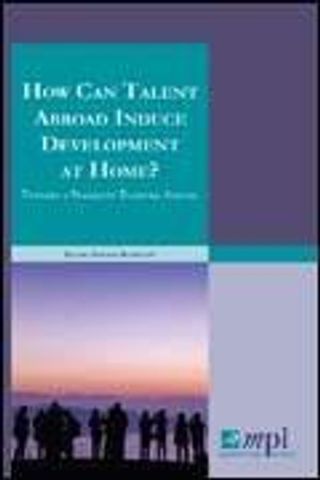?
Linking talent abroad with a drive for innovation at home: a study of the Russian technological diaspora
Chapter 8 focuses on the Russian diaspora and uses the online survey and face-to-face interviews as an empirical data source. The study concludes that Russian emigrants are less engaged in their home country development that their Argentinean or Mexican counterparts. But this gap is not as large as it seems given the much stronger engagement with the home country of the foreign institutions at which Russian emigrants work, and the high intensity of business visits in spite of distance and costs. Membership in international networks and receptiveness of the local businesses to change drive linkages more than other factors. Individual risk-taking is strongly associated with linkages. Counterintuitively, Russia displays the widest variety of diaspora success stories, more so than the more advanced South Korean economy.
In book
